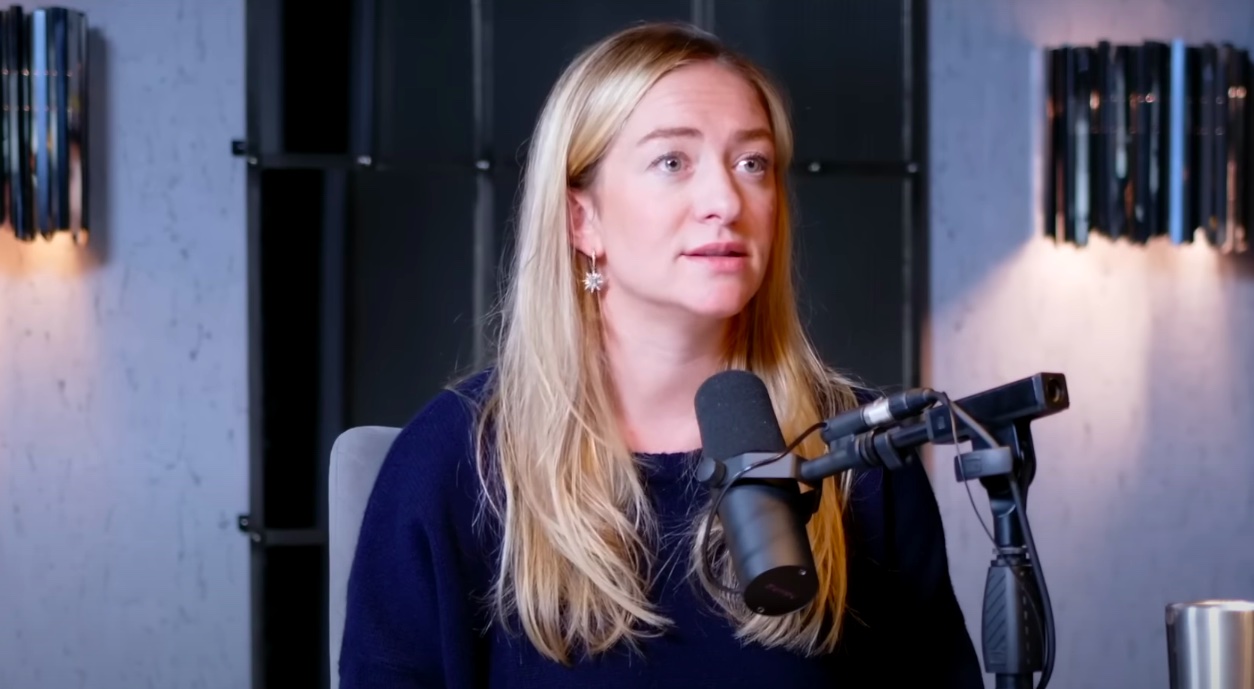Directed by Rachel Lee Goldenberg, Hulu’s ‘Swiped’ is a biographical drama film that delves into the origin story of the dating apps Tinder and Bumble. The focus is on a young woman named Whitney, whose marketing skills get her a job at a startup where the idea of a dating app takes hold. While she becomes instrumental in the app’s creation and its success, she has to face a lot of hurdles since the tech industry remains male-dominated. The film charts her journey as she goes through the highs and lows that test the limits of her patience and her ability to survive. What makes the story even more impactful is that it captures the struggles of the real-life Whitney. SPOILERS AHEAD.
Swiped Dramatizes the Story of the Woman Who Changed the Game for Online Dating
‘Swiped’ is inspired by the true story of Whitney Wolfe Herd and encapsulates her tumultuous journey. Beginning from her early 20s, it focuses on her time at Tinder, the scandal that led to her departure from the company, and her subsequent quest to create Bumble, a venture that turned her into a billionaire. The story is written for the screen by Bill Parker, Rachel Lee Goldenberg, and Kim Caramele. While the film borrows heavily from real life, some characters and events have been dramatized in the service of the plot. Born in Salt Lake City, Utah, to a property developer and a homemaker, Whitney Wolfe graduated from Southern Methodist University with a focus on pursuing humanitarian endeavours. In her senior year, she worked on a non-profit called the Help Us Get Cleaned Up project, which aimed to help in the relief work following the Deepwater Horizon oil spill by designing bamboo tote bags.

Following college, she spent some time in Asia, volunteering at orphanages. When she returned home, she had the idea of creating a start-up that would focus on something along the lines of volunteering. However, in 2012, she met Sean Rad and Justin Mateen, the University of Southern California graduates, who were working on a startup. They were taken in by Whitney’s marketing skills and promptly brought her on board their new project. In September of the same year, Tinder (a name Whitney is credited with coming up with) was launched. Whitney travelled across universities, starting with her alma mater, SMU, where she convinced sorority girls and frat boys to sign up, resulting in a massive bump in the app’s numbers. At one point, Rad also named her a co-founder of the company. Around the same time, Whitney and Justin got into a relationship. They broke up after a while, but things reportedly got increasingly uncomfortable, which eventually reflected in their work.
According to reports, Justin sent considerably aggressive texts to Whitney, which went public when she took the company to court. In 2014, Whitney filed a lawsuit against Tinder, claiming sexual harassment and discrimination. According to the lawsuit, she claimed that her co-founder’s title was taken away because she was a woman. It also detailed the alleged abuse directed towards her by Justin, who reportedly called her a “wh*re” during a company party. Wolfe claimed that she had raised the issue with Rad, but her concerns were not acknowledged, and that she was pressured into resigning from the company. The lawsuit was eventually settled, where Whitney’s status as Tinder’s co-founder was confirmed. Reportedly, she received more than $1 million in the settlement, while also being made to sign a non-disclosure agreement about her time at the company. This prevented her from participating in the making of the Hulu film.
Whitney Wolfe Herd Wanted to Make a Dating App That Provides a Safer Space for Women
Some time after leaving Tinder, Whitney Wolfe Herd decided to work on a new project that would be directed towards spreading kindness. She met with Russian entrepreneur Andrey Andreev, who founded the UK-based dating app Badoo, which had not yet broken into the American market. Whitney shared with him the idea of a new app she called Merci, which would focus on women and have the feature of communicating via compliments. Andrey told her to take this idea into the world of dating. Initially, she was hesitant about returning to the business of dating apps. But eventually, she decided to build a dating app that would put control in the hands of women.

Whitney thought of calling the app Moxie, but the name had already been taken. While she and the team brainstormed ideas about what to call their new creation, several key features were added to it. A major decision was to give women the agency to make the first move. They also put a no-tolerance policy on harassment, banned shirtless selfies, and introduced account verification via photos. Eventually, one of her colleagues suggested the name Bumble. Whitney had doubts about it in the beginning, but she ended up liking the name, and Bumble was launched in December 2014. Whitney resorted to her old marketing technique to spread the word, focusing on young people in college to sign up on the app.
Soon, Bumble took off, and Whitney featured on the “30 Under 30” of Forbes’ December 2017 issue. Its success prompted Match Group, the owner of Tinder, to make a bid for the company. Reportedly, their initial offer was $450 million, and they are later rumored to have offered more than $1 billion, but the offer was refused. Whitney continued to expand Bumble by introducing things like Bumble BFF, focused on friendships and community rather than dating, and Bumble Bizz, a LinkedIn-like app targeted to help women in their professional circles. While working on Bumble, Whitney also met her now-husband, Michael Herd, with whom she has two sons. ‘Swiped’ follows these ups and downs in her personal and professional journey to deliver an inspiring tale of creativity and determination in the face of all odds.


You must be logged in to post a comment.